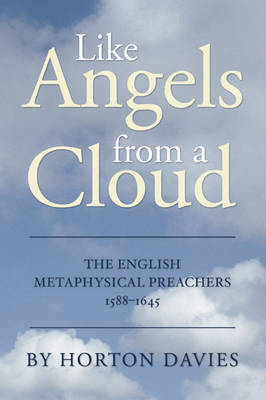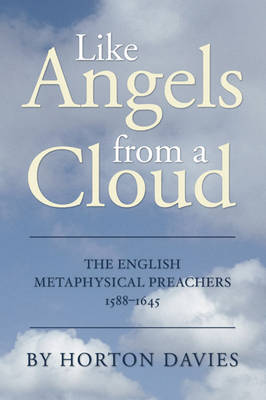
- Retrait gratuit dans votre magasin Club
- 7.000.000 titres dans notre catalogue
- Payer en toute sécurité
- Toujours un magasin près de chez vous
- Retrait gratuit dans votre magasin Club
- 7.000.0000 titres dans notre catalogue
- Payer en toute sécurité
- Toujours un magasin près de chez vous
Description
This is the very first study made in depth and detail of over forty Anglican preachers in the Golden Age of the English Pulpit. There have been individual studies of the sermons of Donne and Andrewes, but none of the metaphysical preachers as a whole. It is the aim of this book to introduce to the reader some of the less familiar preachers: men such as John Hacket and Ralph Brownrig, Calvinist preachers in the metaphysical style such as the Elizabethan Henry Smith (known as silver-tongued for his oratory), or Thomas Adams, who was styled the prose Shakespeare of Puritan theologians. These men, and others, were widely admired in their day and, in many cases, their contemporary popularity challenged that even of Donne. This study provides explanations for the popularity of the metaphysical style, and incidentally proves untenable the stereotype that all the metaphysical preachers were of the Arminian persuasion, since a fair proportion of the group were Calvinists who rejected the Puritan plain style in favor of a metaphysical mode of expression. One explanation of the popularity of this style for a period of some fifty years is that practically every metaphysical divine was also a poet, and that daring imagery, wit, and arcane knowledge were the chief differentia of this style of poetry. Furthermore, James I and Charles I were great admirers of wit and learning. They chose royal chaplains for these qualities: learning made them good apologists, and their wit kept the captive congregations at court intrigued. Equal attention is given to the biographies of the preachers, the themes of their sermons, and the techniques of preaching and sermon construction, with separate chapters on learning and eloquence, wit and imagery, and the uses to which they were put. The result is a full picture of the group of seventeenth-century divines who preached like angels from a cloud.
Spécifications
Parties prenantes
- Auteur(s) :
- Editeur:
Contenu
- Nombre de pages :
- 518
- Langue:
- Anglais
Caractéristiques
- EAN:
- 9781592449347
- Date de parution :
- 08-10-04
- Format:
- Livre broché
- Format numérique:
- Trade paperback (VS)
- Dimensions :
- 157 mm x 228 mm
- Poids :
- 712 g

Les avis
Nous publions uniquement les avis qui respectent les conditions requises. Consultez nos conditions pour les avis.






